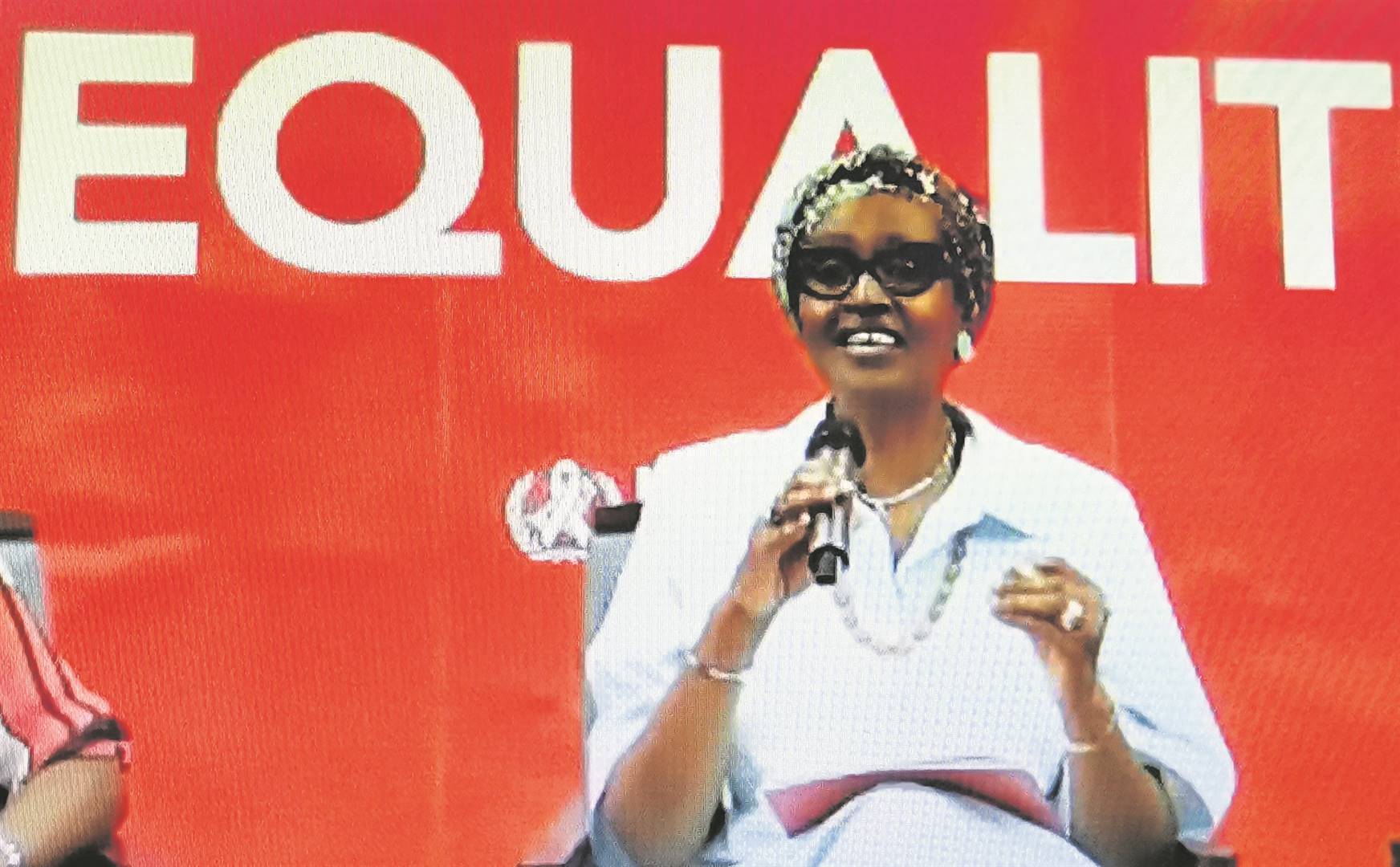
The UNAIDS World Aids Day report shows that only urgent action to tackle inequalities can get the world’s Aids response on track.
At a United Nations (UN) General Assembly High-Level Meeting on Aids held in New York in June last year, member states adopted a political declaration to get the world on track to end Aids as a public health threat by 2030.
Targets set included reducing annual new HIV infections to under 370 000 and annual Aids-related deaths to under 250 000 by 2025, ending paediatric Aids and eliminating all forms of HIV-related stigma and discrimination, achieving the 95–95–95 testing, treatment and viral suppression targets within all demographics and groups and geographic settings, and eliminating all forms of sexual and gender-based violence GBV) by adopting and enforcing laws that address multiple forms of discrimination and violence.
Last year, according to the United Nations, 38,4 million people were living with HIV, over 650 000 died from Aids-related illnesses, and 1,5 million were newly infected.
The UNAIDS World Aids Day report, titled “Dangerous Inequalities”, was launched in Dar Es Salaam, Tanzania, on Tuesday 29 November.
Speaking at the event, Winnie Byanyima, Executive Director of UNAIDS, said the danger lay in the fact that, currently, we were not on track globally to end Aids by 2030. “And the reason is inequality. But there’s good news, by equalising, which is possible, we can end Aids.”
An initiative called Education Plus, adopted by 12 African countries, is hoping to address this. “If we can enable our girls to stay in school until they complete secondary education, this would reduce their vulnerability to HIV infection by up to 50%. And if we include in that education what is called comprehensive sexuality – teaching them about their bodies and how to protect themselves – then this risk is reduced even further,” said Byanyima.
She added that beyond this, services for sexual productive health, preventing and responding to sexual and gender-based violence and preventing and responding to HIV needed to be combined.
“And we must design them in such a way that they are tailored to meet the needs of girls and women in all their diversity. They are not the same, they are rural girls, they are abandoned women,” she said.
“We will not end Aids unless we can end it for everyone,” said Byanyima, adding that evidence had shown if governments decriminalised, people came forward to get services.
She referred to South Africa where same-sex relationships are legal.
“(In South Africa) men are 60% more likely to be living with HIV than other men. That is high. But you go to Uganda, where I come from, where guy sex is criminalised, they are 240 times more likely to have HIV. That is the difference with criminal laws.”
She said although there was a growing momentum from Asia to Africa to the Caribbean for decriminalisation, there were still 68 countries that had these laws.
“Let’s consign these colonial and harmful laws to history. We don’t need them. They take people away from services.”
Part and parcel with this goes the need to fight stigma. Byanyima said stigma was a sentence passed by society on people and stigma killed.
“For marginalised communities, we need every leader – political leaders, faith leaders, traditional leaders, cultural icons like football players and musicians – we need everybody to speak up against stigma.”
“It tells you we are leaving children behind and we must do something,” said Byanyima.
To close this gap, the UN, together with their international partners, civil society and governments from 12 countries that have the highest burden of children with HIV, has formed the Global Alliance to end Aids in children. Tanzania will host theofficial launch of this alliance early next year.
Byanyima said work was already going ahead.
“It’s winnable. Already 15 countries have been certified for eliminating mother-to-child transmission, including a country like Botswana. Botswana is on the way there. In Botswana, there’s been a serious focus on getting HIV treatment to children and we see Aids deaths among children have fallen rapidly. From thousands of children who were dying a few years ago to less than 200 deaths last year.”
“Every day, the rich countries of the G20 receive $136 million in debt repayments from poor countries here in the South. In terms of paying the interest on debt owed by poor countries. Meanwhile, in these developing countries, that repayment of debt is four times more than the countries spend on health, twice the spend on education.”
She said in the midst of a debt crisis – caused by covid and the Ukraine War – some “rich” countries had also cut back aid for global health and were considering even deeper cuts. She called for renewed international solidarity in the fight against Aids.
“Now is not the time to step away, now is the time to step up.”




 Publications
Publications
 Partners
Partners
























